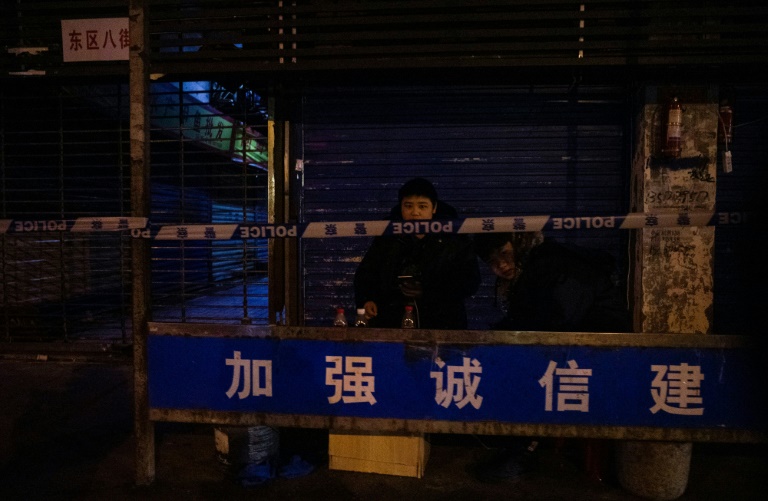
A 61-year-old man has become the first person to die in China from a respiratory illness believed caused by a new virus from the same family as SARS, which claimed hundreds of lives more than a decade ago, authorities said.
Forty-one people with pneumonia-like symptoms have so far been diagnosed with the new virus in Wuhan, with one of the victims dying on Thursday, the central Chinese city’s health commission said on its website on Saturday.
Seven others remained in serious condition, two were discharged from treatment, and the rest were stable, it added.
The episode has caused alarm due to the spectre of SARS, or Severe Acute Respiratory Syndrome, which in 2002-2003 killed 349 people in mainland China and another 299 in Hong Kong, whose economy was hit hard by the epidemic’s devastating impact on tourism.
The Wuhan health commission said the man who died had purchased goods from a seafood market in the city identified by authorities as the centre of the outbreak. It was closed on January 1.
The man, who also had underlying health issues including chronic liver disease, died in hospital on Thursday of “respiratory failure and severe pneumonia”, the commission added.
No new cases have been detected since January 3 nor any “clear evidence of human-to-human transmission”, it said.
People in white hazmat suits were seen spraying liquid on the market floor late Saturday, while a number of guards sat outside the perimeter of the facility’s two sections without masks on.
Chinese scientists investigating the outbreak said last week they believe the pathogen is a previously unknown type of coronavirus, a broad family ranging from the common cold to more serious illnesses like SARS.
Scientists in Hong Kong’s Department of Health said Saturday that genetic sequencing of the virus found in one of the Wuhan patients and published online by a Chinese expert indicated it was 80 percent similar to SARS found in bats.
Speaking at a news conference in Hong Kong, they said it was too early to conclude definitively that it was a SARS strain, adding that the city needed to stay vigilant.
“We will remain alert as we believe the epidemic will continue to develop,” said Wong Ka-hing, director of the department’s Health Protection Centre.
Hong Kong authorities have taken a range of precautions including stepping up the disinfection of trains and planes, and checks of passengers.
Travel rush looms
On Saturday evening, there was little sign of alarm in Wuhan outside of the seafood market, which had been cordoned off.
Few people at the city’s airport wore masks, and no extra monitoring measures were visible at the airport’s terminals.
A restaurant on the outside of the building housing the seafood market was still open for business.
One man, a dry goods seller at the market surnamed Dai, attempted to enter the market around midnight but was turned away by the guards.
He told AFP he was not worried about getting infected.
“I haven’t heard that this disease is contagious,” Dai said, adding that he believed the illness was caused by a fire at the market in mid-November where items including plastic materials and chili peppers were burnt.
The WHO said Thursday it was not recommending any specific measures for travellers or restrictions on trade with China, and expressed confidence in the ability of Chinese authorities to contain the virus.
China has entered its annual Lunar New Year holiday travel rush, raising concerns about the mass movement of people serving as a vector for the pathogen.
In the world’s largest annual human migration, hundreds of millions will pack into trains, buses and planes to travel for the festival in late January.
China has not announced any travel restrictions.
Hong Kong authorities said on Saturday that the number of people hospitalised with flu-like symptoms in recent days after travelling to Wuhan had grown to 60, including seven new cases since Friday.
Forty-six of that total, however, have already been discharged. None have yet been diagnosed with the new coronavirus.
City residents worried about the outbreak have rushed to buy face masks from local pharmacies, with many selling out earlier this week, while officials in Taiwan have urged the island’s health and welfare ministry to strengthen quarantine controls.
Reporting by AFP
Image: Security personnel stood guard outside the closed Huanan Seafood Wholesale Market, where officials said a man who died from a respiratory illness had purchased goods (AFP / NOEL CELIS)




